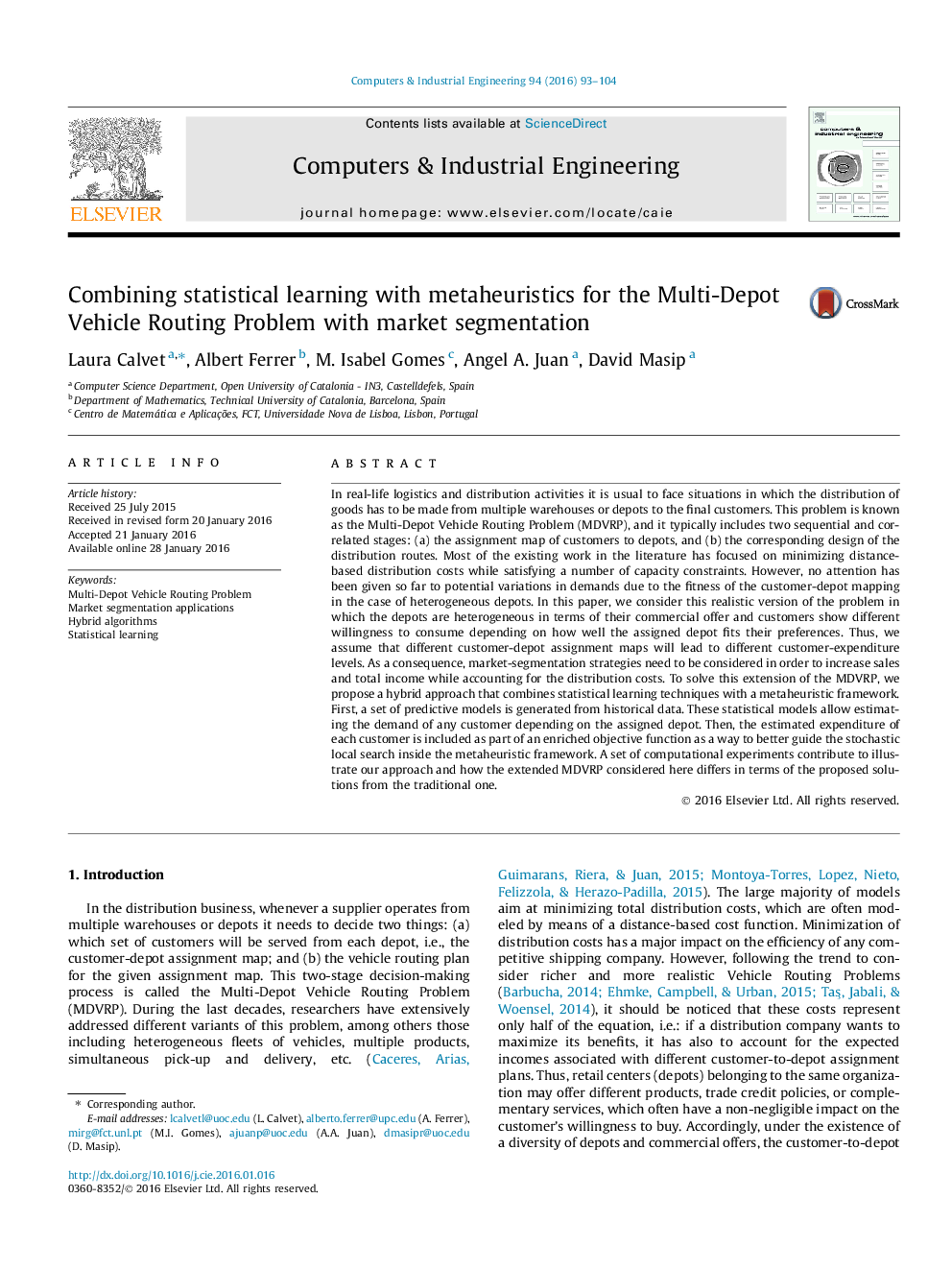| کد مقاله | کد نشریه | سال انتشار | مقاله انگلیسی | نسخه تمام متن |
|---|---|---|---|---|
| 1133271 | 1489072 | 2016 | 12 صفحه PDF | دانلود رایگان |
• We address the Multi-Depot Vehicle Routing Problem with heterogeneous depots.
• Our approach takes into consideration customers’ preferences and distribution costs.
• We combine statistical techniques and metaheuristics to maximize companies’ benefits.
In real-life logistics and distribution activities it is usual to face situations in which the distribution of goods has to be made from multiple warehouses or depots to the final customers. This problem is known as the Multi-Depot Vehicle Routing Problem (MDVRP), and it typically includes two sequential and correlated stages: (a) the assignment map of customers to depots, and (b) the corresponding design of the distribution routes. Most of the existing work in the literature has focused on minimizing distance-based distribution costs while satisfying a number of capacity constraints. However, no attention has been given so far to potential variations in demands due to the fitness of the customer-depot mapping in the case of heterogeneous depots. In this paper, we consider this realistic version of the problem in which the depots are heterogeneous in terms of their commercial offer and customers show different willingness to consume depending on how well the assigned depot fits their preferences. Thus, we assume that different customer-depot assignment maps will lead to different customer-expenditure levels. As a consequence, market-segmentation strategies need to be considered in order to increase sales and total income while accounting for the distribution costs. To solve this extension of the MDVRP, we propose a hybrid approach that combines statistical learning techniques with a metaheuristic framework. First, a set of predictive models is generated from historical data. These statistical models allow estimating the demand of any customer depending on the assigned depot. Then, the estimated expenditure of each customer is included as part of an enriched objective function as a way to better guide the stochastic local search inside the metaheuristic framework. A set of computational experiments contribute to illustrate our approach and how the extended MDVRP considered here differs in terms of the proposed solutions from the traditional one.
Journal: Computers & Industrial Engineering - Volume 94, April 2016, Pages 93–104
